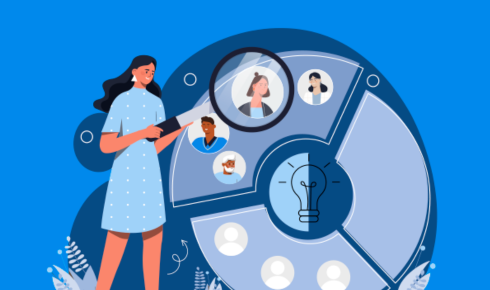Artificial Intelligence (AI) is not just another buzzword; it’s a powerful driver of modern business transformation. Companies are streamlining workflows and unlocking new levels of efficiency by leveraging AI across sales, human resources (HR), and operations. As businesses face increasing pressure to deliver better experiences at lower costs, understanding how AI workflows can be leveraged in key departments is not just useful—it’s mission-critical.
In this long-form article, we will explore detailed, real-world AI workflow examples within sales, HR, and operations. You’ll find out how these intelligent solutions optimize daily tasks, supercharge productivity, and provide enterprises with a significant competitive edge. If your goal is actionable insights and inspiration for transformation, keep reading.
AI Workflow Examples for Sales
Sales departments thrive on agility and precision. The right workflow can mean the difference between a closed deal and a missed opportunity. Here are powerful AI workflow examples that are reshaping the sales landscape.
1. Lead Scoring and Prioritization
Not all leads are created equal. AI-driven lead scoring analyzes massive datasets—from demographic information to online behaviors and content engagement—to assign scores to each lead, predicting their likelihood to convert. Sales teams can then focus their energy on leads most likely to become customers, significantly increasing conversion rates and sales efficiency.
- How it works: Machine learning models are trained on historical data, evaluating characteristics of past leads that turned into sales, and applying those patterns to new leads.
- Business Outcome: Higher-converting pipelines and better use of sales resources.
2. Personalized Customer Interactions
AI-powered tools transform how sales teams engage with prospects and customers. By analyzing CRM data, communication history, and behavioral patterns, AI recommends personalized email content, product recommendations, or sales pitches to each customer—delivering messages that truly resonate.
- How it works: Natural language processing (NLP) and predictive analytics determine the right content, timing, and channel for each interaction.
- Business Outcome: Increases email open rates, customer engagement, and overall revenue per sales rep.
3. Sales Forecasting
Gone are the days of guesswork. Modern sales organizations use AI algorithms to analyze historical sales data, current trends, and external market conditions to produce highly accurate sales forecasts. This predictive capability enables sales managers to set realistic targets, allocate resources more effectively, and spot potential shortfalls before they occur.
- How it works: AI models continuously update forecasts using new data, identifying hidden patterns and market shifts faster than traditional methods.
- Business Outcome: More predictable revenue streams and improved strategic planning.
4. Chatbots for Customer Service
AI chatbots are revolutionizing customer engagement by providing instant responses to routine questions, booking appointments, and even nurturing leads after hours. This frees up sales representatives for higher-value, relationship-driven tasks, while ensuring customers receive 24/7 support.
For deeper integration of AI across your entire sales architecture, consider an enterprise AI platform designed to orchestrate and unify tasks seamlessly.
AI Workflow Examples for HR
HR is fast becoming a data-driven function, propelled by AI-powered workflows that improve hiring, engagement, and employee management.
1. Recruitment and Candidate Screening
AI streamlines hiring with automated resume parsing, screening, and candidate ranking based on predefined criteria and organizational fit. Modern applicant tracking systems (ATS) now leverage AI to minimize human bias and accelerate the time-to-hire.
- How it works: AI scans resumes, cover letters, and portfolios, cross-referencing against job descriptions to find top candidates in real-time.
- Business Outcome: Less manual screening, more qualified hires, and reduced recruiting costs.
2. Employee Onboarding
New hire onboarding can be overwhelming—unless it’s powered by AI. Virtual onboarding agents guide new employees through paperwork, training modules, and workplace FAQs. This not only streamlines the process but delivers a more consistent and engaging onboarding experience.
- How it works: AI chatbots answer questions, remind employees about deadlines, and provide information tailored to each role.
- Business Outcome: Better onboarding experiences and faster ramp-up times for new hires.
3. Performance Management
Performance reviews are often subjective and time-consuming. AI-powered systems, however, can continuously analyze employee data—such as performance metrics, peer feedback, and productivity patterns—to surface coaching opportunities, learning needs, and high-potential talent.
- How it works: AI identifies patterns in data to recommend personalized training or flag potential retention risks.
- Business Outcome: More effective development plans and increased employee retention rates.
4. Employee Engagement and Sentiment Analysis
By analyzing surveys, feedback, and communication channels, AI detects employee sentiment trends and proactively identifies potential morale or engagement issues. Managers receive actionable insights to address concerns before they escalate.
Learn more about the practical applications of an enterprise ai agent and how it empowers HR teams to act on data in real-time.
AI Workflow Examples for Operations
Operations teams are under constant pressure to drive efficiency, reduce costs, and ensure quality. AI workflows here can have an outsized impact on business performance.
1. Predictive Maintenance
AI enables companies to shift from reactive to proactive maintenance strategies. By continuously monitoring equipment (via IoT sensors, logs, and historical data), AI can predict failures and recommend maintenance before breakdowns occur—significantly reducing downtime and costs.
- How it works: Machine learning models spot abnormal trends and issue alerts, allowing optimal repair scheduling.
- Business Outcome: Reduced operational costs and longer asset lifespans.
2. Supply Chain Optimization
Supply chains are complex, often global networks. AI optimizes inventory management, logistics, and procurement by analyzing everything from real-time demand signals to shipping costs and supplier risk.
- How it works: AI-powered algorithms recommend order quantities, delivery routes, and supplier alternatives, even automatically placing stock orders or rerouting shipments when problems arise.
- Business Outcome: Higher service levels, lower working capital, and more resilient supply chains.
3. Process Automation
From invoice processing to inventory reconciliations, AI-powered robotic process automation (RPA) handles repetitive, rules-based operational tasks. This not only eliminates human error and bottlenecks but allows staff to focus on value-added activities.
- How it works: AI bots integrate with enterprise systems, extracting and inputting data, validating information, and handling exceptions.
- Business Outcome: Shorter cycle times and greater operational scalability.
4. Quality Control with Computer Vision
Manufacturers and logistics teams are leveraging AI-powered computer vision for automated quality inspection. These systems analyze images of products, parts, and packaging, identifying defects with far greater speed and accuracy than human inspectors.
To truly understand the capabilities at your disposal, read more about what is an ai agent and see why so many operational leaders are prioritizing intelligent automation.
The Future of Intelligent Enterprise Workflows
Integrating AI into sales, HR, and operations is no longer optional for organizations seeking efficiency and innovation. From automated lead scoring to predictive maintenance, AI makes it possible to refocus your teams on what matters most: strategic decision-making and human creativity.
Businesses that build robust, scalable AI workflows will enjoy heightened agility, improved employee satisfaction, and unmatched competitive advantage. The era of AI-powered enterprise is here—will you lead, or lag behind?
Frequently Asked Questions (FAQ)
1. What is an AI workflow?
An AI workflow is a series of tasks or processes within a business function (like sales, HR, or operations) that leverages artificial intelligence to automate, optimize, or enhance performance.
2. How do I start implementing AI in my existing workflow?
Begin by identifying repetitive or data-intensive tasks, selecting the right AI tools, and integrating them gradually into your current systems, ensuring proper training and benchmarking for success.
3. What are the benefits of using AI in sales?
Benefits include improved lead qualification, personalized outreach, more accurate sales forecasts, reduced operational bottlenecks, and enhanced customer engagement.
4. How does AI improve HR processes?
AI enhances HR by automating candidate screening, streamlining onboarding, providing data-driven performance reviews, and monitoring employee sentiment for proactive engagement.
5. Is AI-based predictive maintenance expensive to implement?
Initial investments can vary, but long-term ROI is high—mainly due to reduced downtimes, lower repair costs, and increased equipment lifespans.
6. Can AI help prevent unconscious bias in hiring?
Yes, when properly trained and monitored, AI can minimize human biases in resume screening and candidate selection by focusing solely on relevant qualifications and experiences.
7. What is an enterprise AI platform?
An enterprise AI platform is a comprehensive system designed to orchestrate, deploy, and manage AI solutions across various business functions in a scalable, integrated manner.
8. How does AI-powered process automation work?
AI-driven automation utilizes bots to handle repetitive, logic-based tasks. This boosts efficiency and frees up human workers for complex decision-making.
9. What skills are needed to manage AI workflows?
Key skills include data analysis, process management, understanding of machine learning concepts, and the ability to interpret actionable insights from AI outputs.
10. Are AI workflows secure and privacy-compliant?
Leading platforms prioritize data security and compliance, ensuring that sensitive information is encrypted and managed in accordance with regulations like GDPR or HIPAA.
Embracing AI workflows is your gateway to a smarter, more agile enterprise. Start small, measure results, and scale intelligently—the future belongs to those who leverage the full potential of artificial intelligence.



